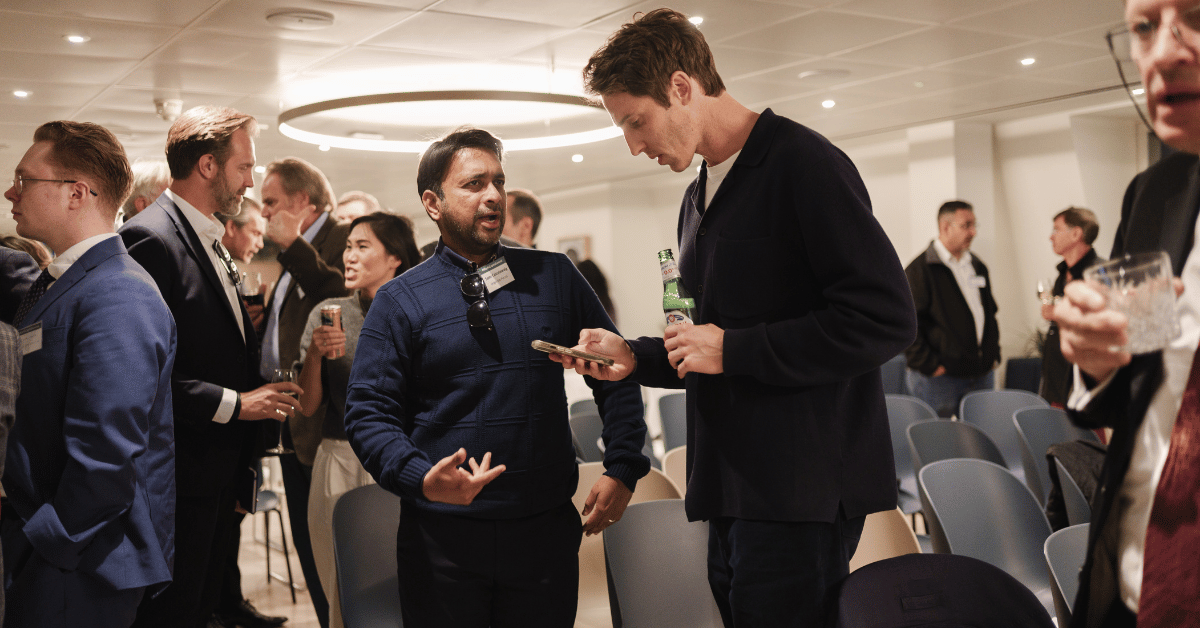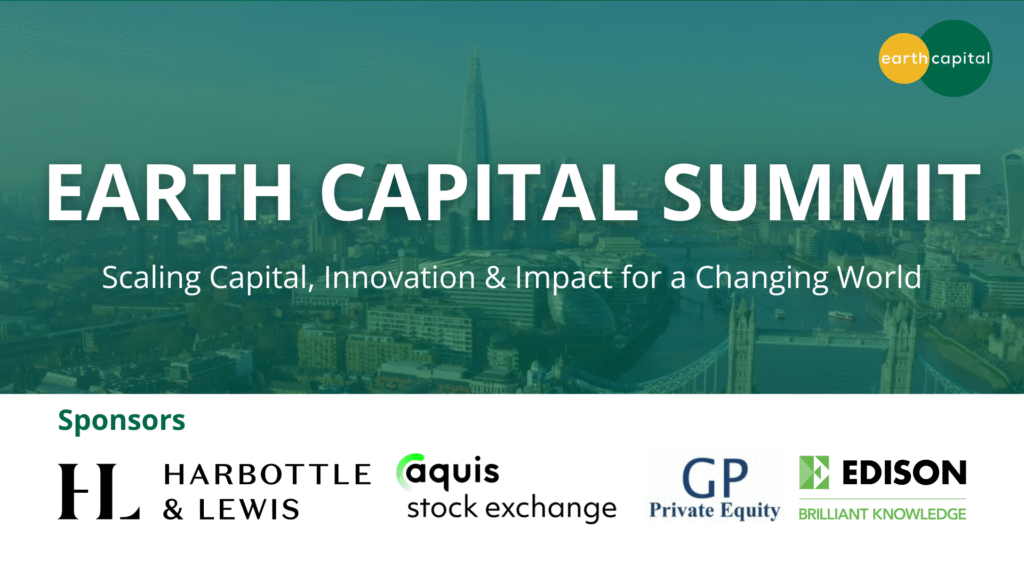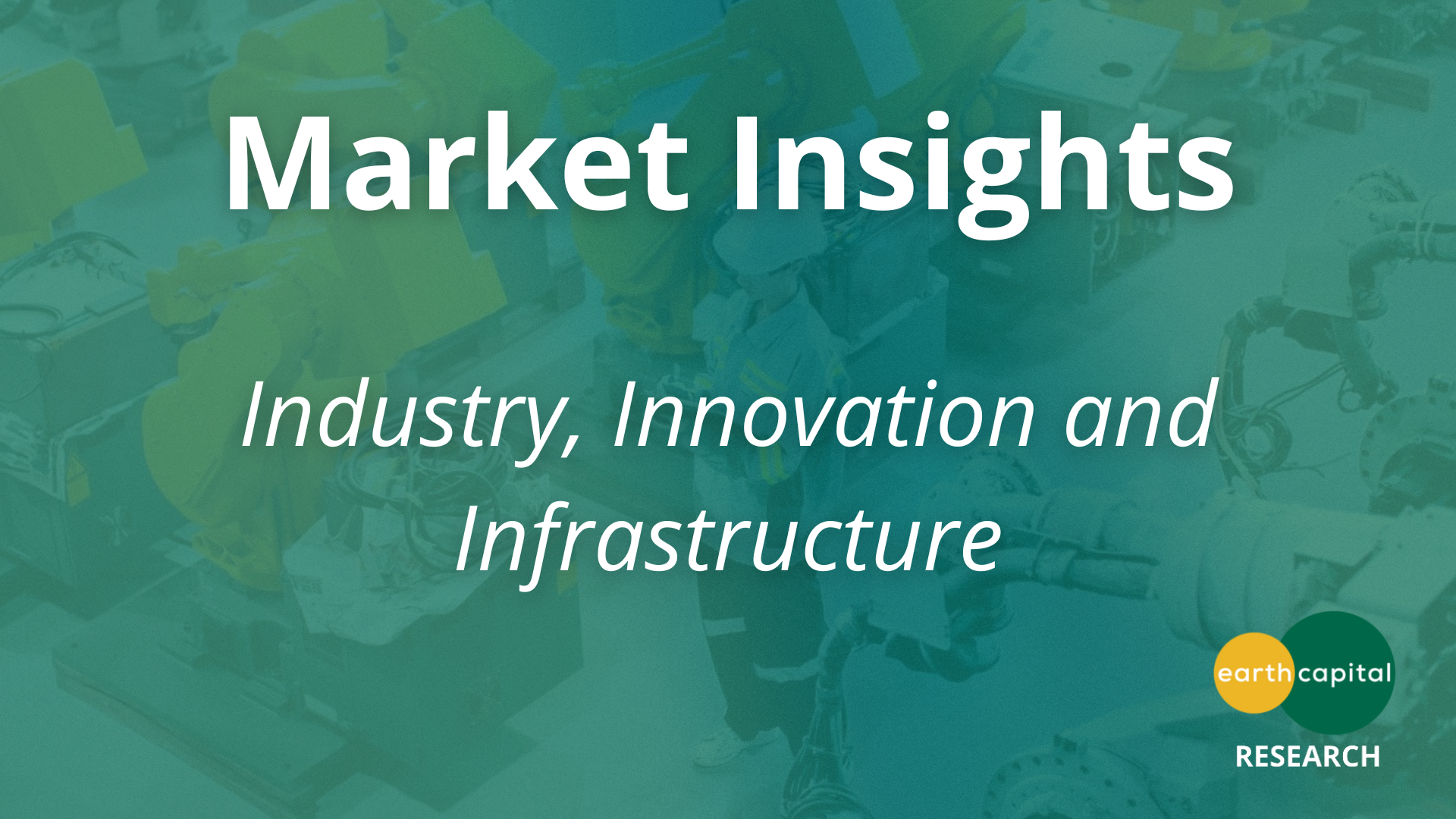London, 6 October 2025 – The Earth Capital Summit 2025 brought together entrepreneurs, investors and sustainability leaders for an inspiring day of ideas, conversation and collaboration. Held under the theme “Scaling Capital, Innovation and Impact for a Changing World”, the summit explored how finance, enterprise and innovation can drive meaningful change for people, planet and prosperity.
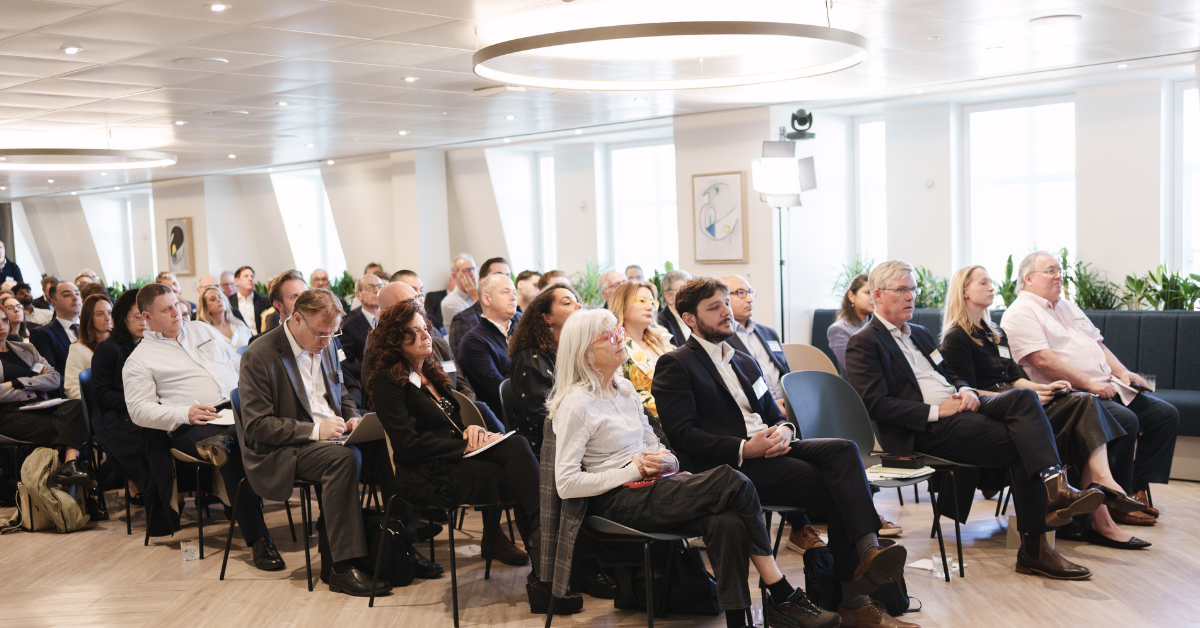
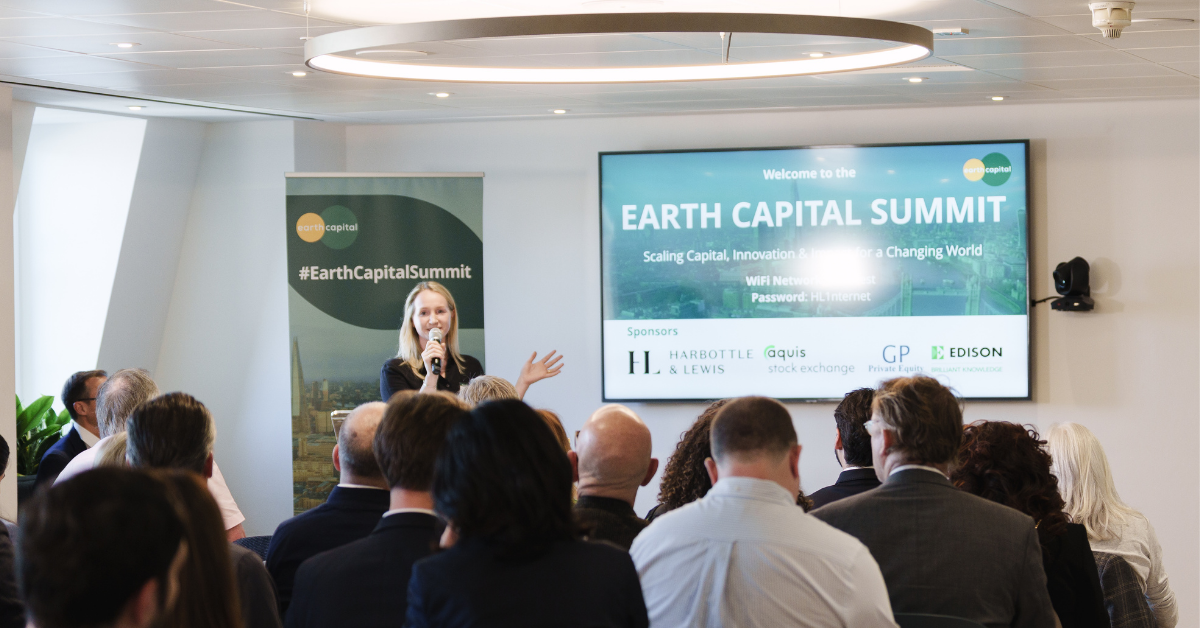
Inspiring Presentations and Candid Conversations
Opening the summit, Olly Lawder, Senior Strategy Director at Revolt (part of the Anthesis Group), set a confident tone with his keynote presentation, “Sustainability Progress and the Decisive Decade.”
“We are at a point where risk-taking and new ideas are not optional; they are essential,” he said, encouraging businesses and investors to embed innovation and measurable impact at the centre of their strategies.
Olly’s remarks challenged delegates to view sustainability not as an ethical choice but as a strategic priority. His message that innovation and accountability must go hand in hand resonated throughout the day.
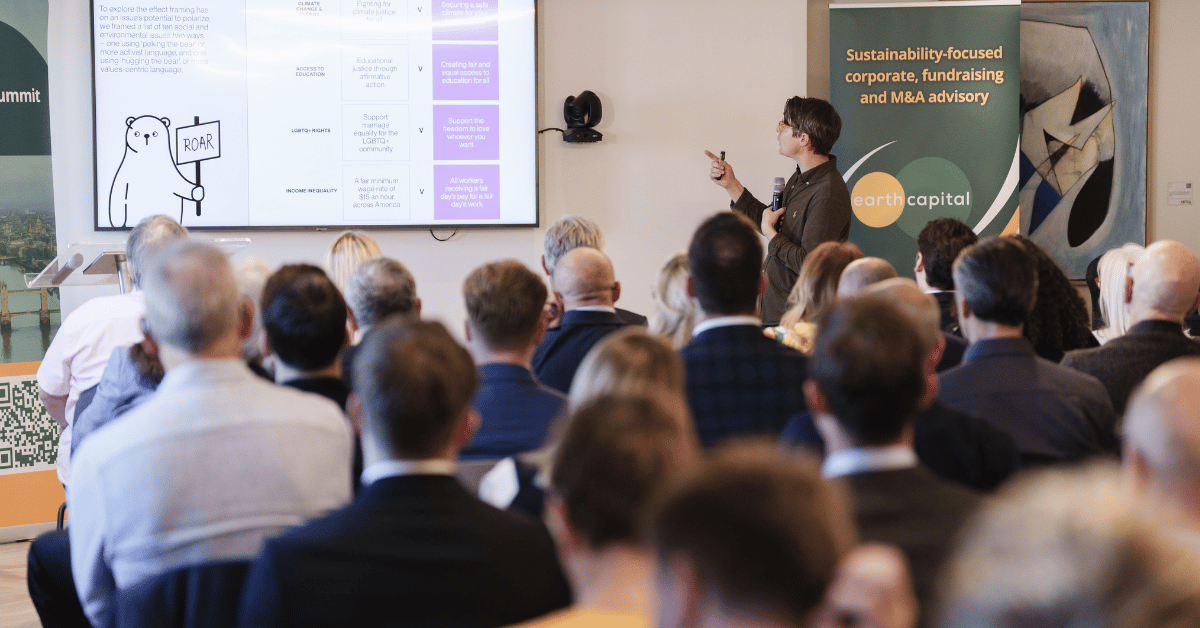
The first panel, chaired by Dr Niki Hutson of Bureau Veritas Solutions, explored what it really takes to grow sustainable ventures up to and beyond the £100 million valuation. Speakers Steve Henney (Aquis Stock Exchange), Henry Philipson (Beringea), Andrew Keen (Edison), Matt Coles (Palatine Private Equity), and Mathangi Chandrasekhar (Gresham House) shared candid insights on balancing ambition with accountability.
“Sustainability and profitability are not trade-offs but mutual enablers,” said Henry Philipson.
“You cannot scale alone,” added Matt Coles. “Partnership and alignment across capital, operations and mission are what make it possible.”
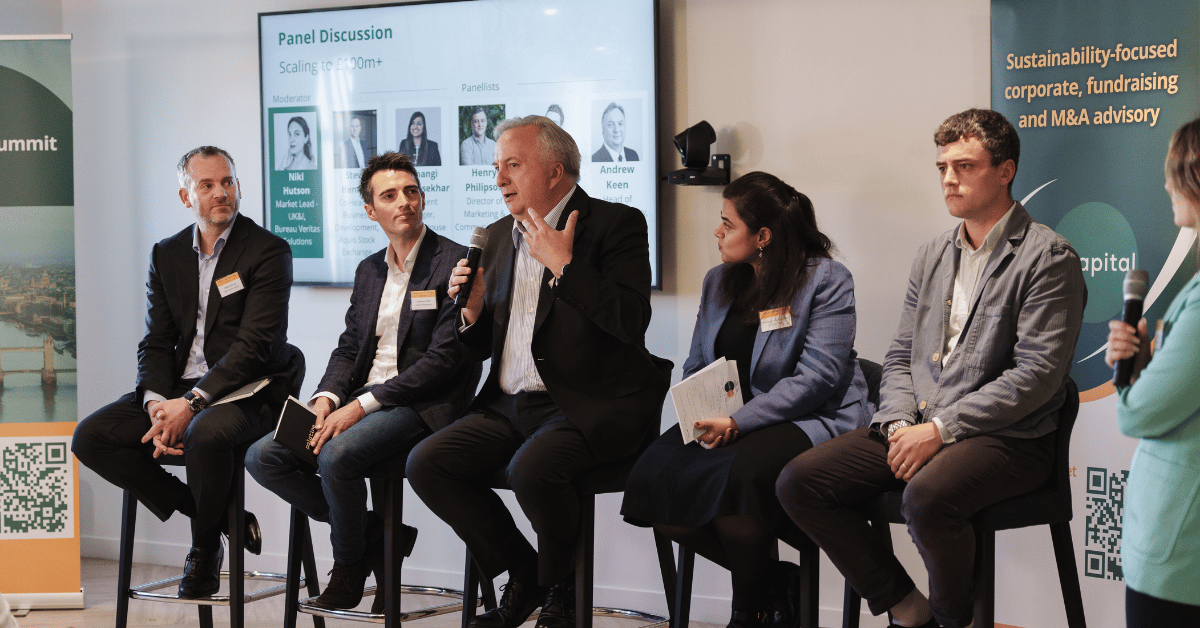
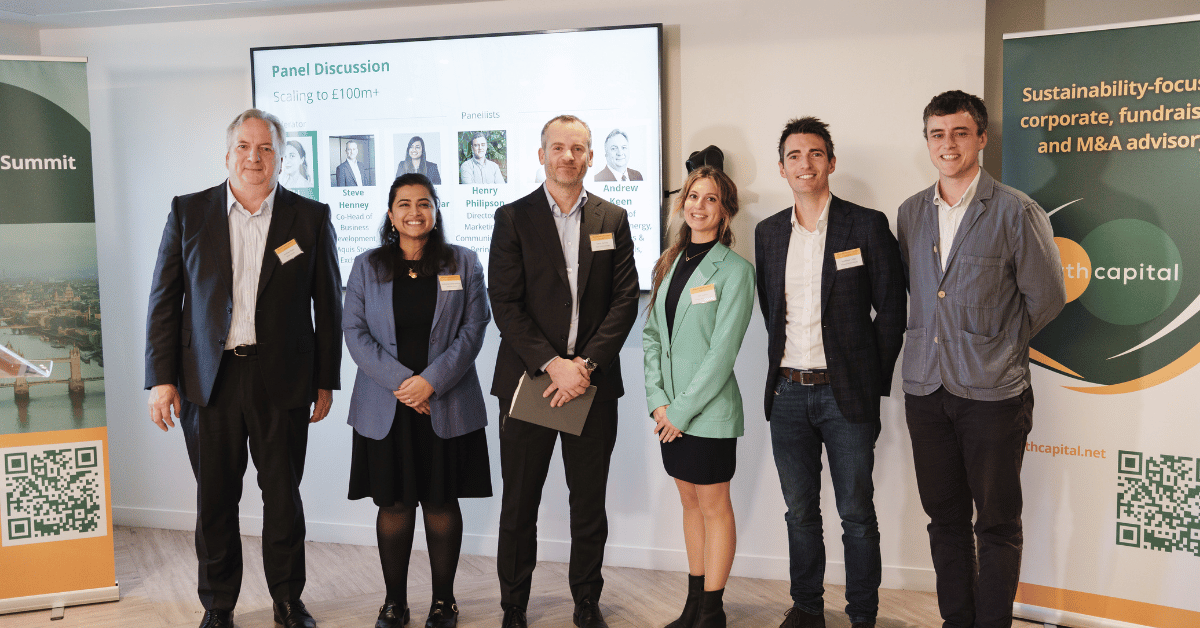
Later in the day, Alessandro Casoli, Global Head of Advisory and Director UK at Holtara (Apex Group), delivered an insightful presentation on the flow of capital in sustainable finance. Drawing on global data, he examined trends in regional investment, the growth of sustainable debt and the shift towards performance-based models.
“The shift is clear, investors want evidence of outcomes, not just promises,” he told delegates.
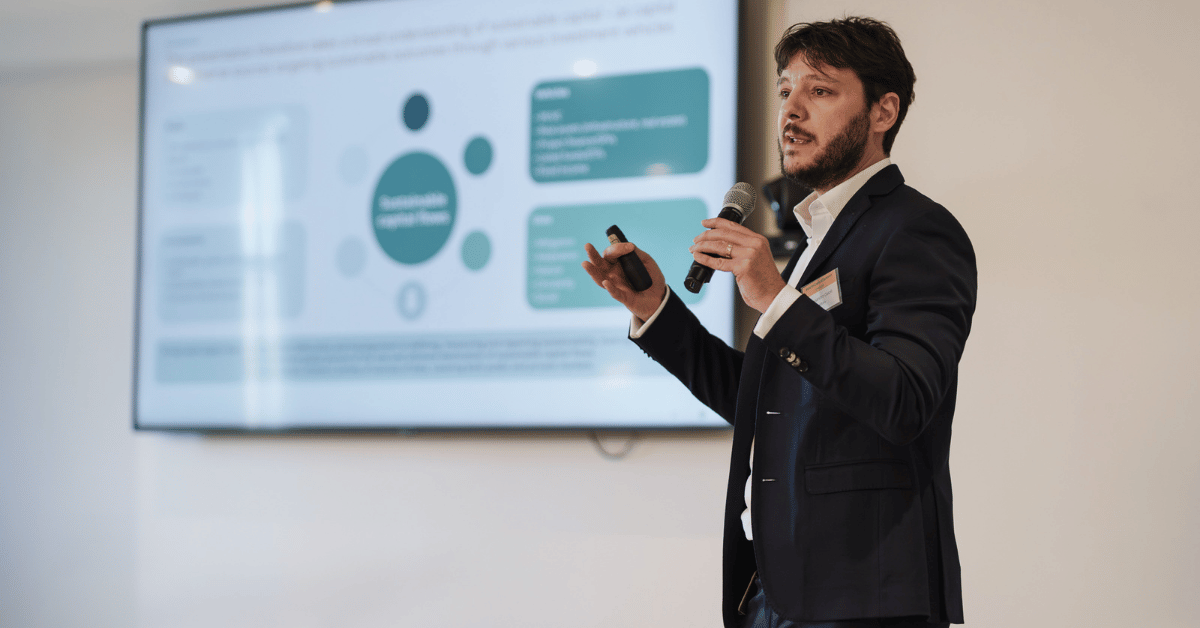
The final panel, moderated by Emma Bickerstaffe of Earth Capital, turned the focus to the global investment landscape and the complexities of cross-border finance.
Panellists James Thompson (Alexander Hutton), Stuart Andrews (Canaccord Genuity), Aisling McCaffrey (Impact Investing Institute), Dr Döne Yalçin (CMS Türkiye and Austria), and Charlie Leveque (Harbottle and Lewis) offered a wide range of perspectives, from legal and policy frameworks to market readiness and risk appetite.
“One thing business really dislikes is uncertainty, as it can be a major barrier to transactional activity, particularly in cross-border deals. Businesses that plan and have flexibility in their DNA can meet uncertainty head-on and perform better. They understand that growth and progress depend on continuing to make decisions, even amid political and economic headwinds.” said James Thompson.
“Investment succeeds when legal frameworks, incentives and enforcement move together, not in isolation,” added Charlie Leveque.

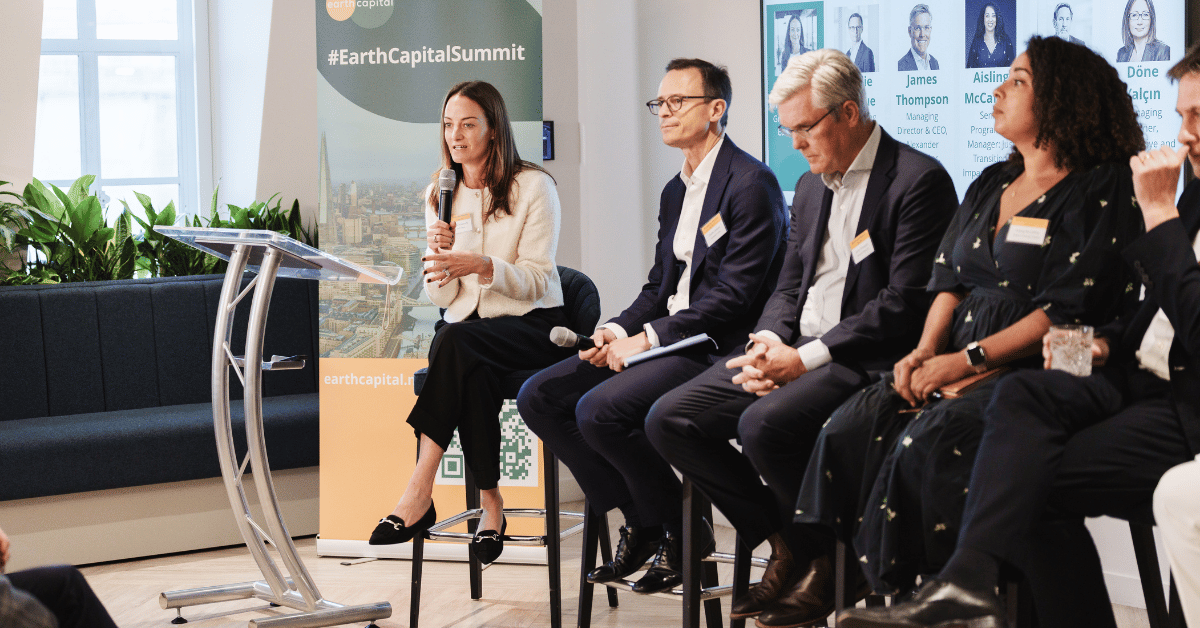
Throughout the day, one message came through clearly: scale and purpose must advance together. Speakers and delegates alike agreed that credible impact measurement, stable policy and public–private collaboration will be critical to unlocking sustainable growth.
Closing Reflections
In closing, Alan Matthews, Director at Earth Capital, captured the mood of the summit: “We are proud to be working with partners, investors and innovators who share our vision for a more sustainable economy. The challenges are complex, but collaboration, data and determination will define the decade ahead. What matters most now is that we move from ambition to action – together.”
As the event wrapped up with networking drinks hosted by Harbottle and Lewis, the atmosphere was one of optimism and shared intent. One attendee summed it up simply: “This summit didn’t just talk about impact, it asked who’s ready to deliver it.”
The Earth Capital Summit 2025 showed that sustainable finance is no longer a distant goal, it’s here, it’s growing, and it’s being shaped by collaboration, data and decisive action.
